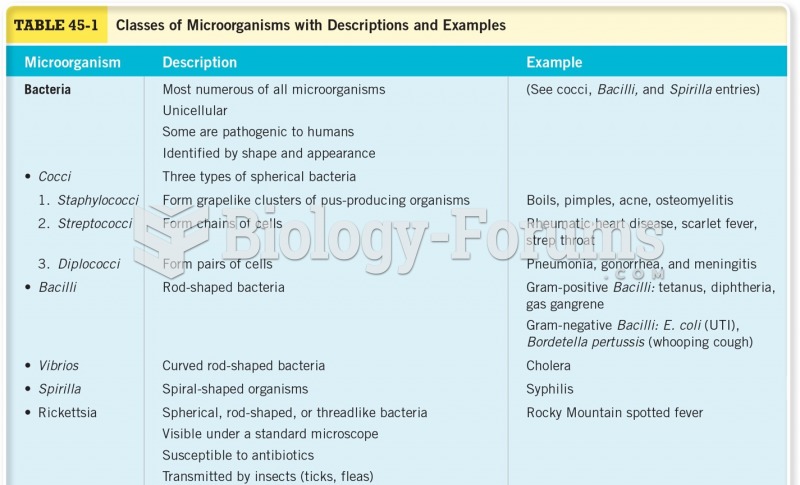Answer to Question 1
Answer: A food allergy is an immune hypersensitivityan overreaction by the immune systemto a protein in a food. It can produce discomfort such as a rash or abdominal cramps, or more serious symptoms, such as impaired breathing or even life-threatening, body-wide inflammation and cardiovascular problems known as anaphylaxis. Common food allergens are milk, peanuts, eggs, wheat, soy, tree nuts, fish, and shellfish.
Food intolerance is not due to an immune hypersensitivity. Rather, it reflects the body's inability to digest some component of a food. Although it may produce physical symptoms such as bloating, abdominal cramps, and diarrhea, they tend to be temporary and resolve as soon as the food has passed through the gastrointestinal tract. The most common food intolerance is to the lactose disaccharide in milk. Many people believe that they have an intolerance to gluten, a protein found in wheat, rye, and barley. Gluten intolerance is not the same as celiac disease, which is a serious autoimmune disorder in which an affected person's immune system produces an inflammatory response in the small intestine whenever the person consumes gluten. The immune response degrades the lining of the small intestine, reducing nutrient absorption, and leading to weight loss, pain, and other signs and symptoms.
Answer to Question 2
Answer: Vitamin D: The best food sources of vitamin D are fatty fish and fortified cow's milk. These foods are not included in a vegan diet. Thus, the vegan has to consume adequate vitamin D from fortified milk alternatives, other fortified foods and beverages, and/or dietary supplements. Although the body can synthesize adequate levels of vitamin D provided that the person has sufficient exposure to sunlight, most people, especially in northern latitudes, cannot rely on skin synthesis.
Vitamin B12: The only natural sources of vitamin B12 are animal-based foods, which are not included in a vegan diet. Thus, the vegan has to consume adequate vitamin B12 from fortified milk alternatives, other fortified foods and beverages, and/or dietary supplements.







